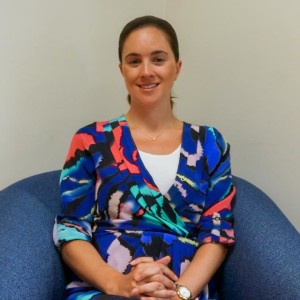by Kristen Tobias, M.A.
Lately, it seems like a lot of people are looking for certainty in love. In my professional and personal circles, individuals ask, “How do I know if he/she is the one for me? What does it mean if I feel like I don’t know? How can I move forward if I am not sure?” It makes sense that individuals become paralyzed in a relationship when they engage in this type of thinking. And the resulting mood is usually anxiety, not love. Albert Ellis’ development of a clinical philosophy that deconstructs dogmatic beliefs is uniquely positioned to deal with the crazy demand for certainty in love. Let’s delve a little into each inquiry.
How do I know if he/she is the one? What does this pervasive question even mean? Is “knowing” a thought or a feeling? If knowing does not have a clear definition, then how can we even understand what we are looking for? Is there any external evidence that would answer this question definitively? It seems that modern humans are plagued by this unanswerable question. Maybe this question was slightly more answerable when humans were confined to small villages. Of a small pool of eligible individuals, could you decipher the one?
If we break this down a little more, the determination that someone is the one is made at that moment in time. People change, the world changes, life circumstances change. Is he/she the one when you want to celebrate your achievements? Is he/she the one when you have to serve as a caretaker for an ailing parent or grandparent? Is he/she the one after you have had sex 700 times? If you know he/she is the one and then he/she leaves you or you fall in love with someone else, does that prove that he/she wasn’t the one? The concept of “the one” seems prone to cognitive biases and circular logic.
Is there a measurable outcome that determines if someone is the one? Is the celebration of a 75th anniversary proof that you chose the one? There are many people who stay in unhappy marriages and continue to honor anniversaries. Conversely, if you are happy at 75 years how do you know he/she was the one? You would need to also have dated every other prospective partner for an equal length of time under the same exact circumstances to make a meaningful comparison.
What does it mean if I feel like I don’t know? Many people cite a person close to them, a mother, father, best friend, grandparent, etc., who claim to have known that the person they married was the one. In turn, when individuals do not think/feel this way, they conclude that something must be wrong with the relationship or himself/herself. With all due respect to the people who make this claim, the idea that certainty in love exists is an impression. Some people are more confident in their impressions, be it in love or otherwise. If you are prone to indecision or not, does it make sense that you would ever know who truly is the one? Moreover, there is overwhelming evidence to support a reality of relational vicissitudes and the dissolution of relationships. Although this claim may not be popular among the soul mate searching, I propose that you are thinking rationally if you do not feel certainty in love.
How can I move forward if I am not sure? If you are engulfed by uncertainty in a relationship, you are likely not going to be in the best emotional state to make this determination. Many people disturb themselves about not knowing, so acceptance of this reality is the cornerstone from which you can approach this important decision. Next, you might try to stop the questioning and go all in. Fully experience the person you are with sans demands for certainty. Make a list of the qualities in a significant other that are most meaningful to you. Does your significant other possess most of them? Can you live with the missing ones?
When all else fails, join the 50% of Americans who get divorced. Then, you can start your certainty demands all over again. After, that is, using the divorce as confirmatory evidence that you did not find the one.

